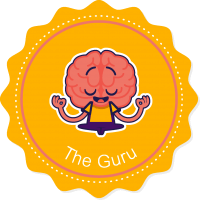Dr. Mushtaque B. Barq
Travel time is a new concept, at least for me, as I have never had to travel 46 kilometers to and from on a daily basis. Sitting in my seat and watching people, traffic, and vehicular movement wasn’t enough to appreciate travel time. Then, one fine day, a gentleman at an official gathering announced the importance of travel time. It struck me profoundly, and I made a plan right then and there. It was just another way of getting on the bus and traveling with my eyes moving along the scenery, but then a message flashed on my mini screen: travel time can be a companion. Things changed abruptly. Initially, the thought was a bit hard to accept, but after giving it a second thought, things improved. I scanned a few videos, listened to a few lectures, and gradually it became routine to plug in my ears, sit back in my seat, and listen to the voices of people I could never reach in my busy professional schedule. One hour daily as your travel time can be turned into a companion to serve the needs, for we need to learn how to live for ourselves. Listening is a skill, as Carl Rogers (1951) introduced the concept of active listening, signifying that hearing someone brings up empathy and profound understanding. He goes on to advocate that listening without judgment is key to personal growth and effective therapy. If we analyze listening through the prism of neuroscience, Mary Helen Immordino-Yang (2016) reveals that deep listening engages multiple brain areas; hence it can be an active cognitive function. Psychologically speaking, Daniel Goleman (1995) argues that listening is a critical component of emotional intelligence, encouraging us to navigate relationships and develop leadership skills. I had never thought that listening to others not only challenges personal storage of information but also opens up the windows to let fresh air reach you. Knowledge is endless, as are human needs.
How often does it work like dethroning a preconceived idea that breaks conscious effort and invites our minds to wander in the realms of illusion? A vociferous act, people may call it meditation for the sake of it, can, to some extent, wash off the dust from the mind to challenge the impact of the mist that hinders our vision. Sharing the boundaries of space and time has been a daunting task for the human mind, but once trained, the same mind opens up to explore those boundaries that held our imaginations. I asked many colleagues about their travel time theories; a few could only pause and reflect: music, recitation of the Quran, Tilawat, subject lesson videos, responding to pending emails, and scanning the inboxes and chat boxes of their gadgets were the responses. The responses actually added to my tasks, and within days, I started to create a timetable for my travel time. To this day, I have listened to a series of talks by Furqan Qureshi and Sahil Adeem. These two scholars have opened up a new world of intricacies and understanding. Active listening during travel time may not be routine for most people, but those who practice it can definitely share better insights than those looking through the window at pedestrians or, for that matter, doing window shopping. A study published in Frontiers in Psychology (2019) found that active listening engages the brain similarly to reading. Even listening to audiobooks activates the same brain region as reading, improving focus and cognitive retention. The Journal of Applied Physiology (2019) showed that breathwork enhances blood circulation, so sitting for a long period, especially in cramped spaces, causes muscle tension, but deep breathing improves relaxation and reduces headaches. After going through a few research articles, I learned that there are two key values of travel time: the value of travel time (VOT) and the value of travel time reliability (VOR). VOT reflects the monetary value travelers assign to reducing travel time, while VOR indicates the value placed on enhancing travel time predictability by minimizing variability. In simple terms, VOT is about saving time, and VOR is about making sure your travel time stays steady and dependable.
Travel time, speaking personally, has become a new learning experience. You have two hours each day to travel, and you have nothing to do except be transported from one destination to another under the supervision of a driver’s skills, along with their helper who assists as needed. Other than that, there is nothing—just nothing. Killing that ‘nightmare of nothing,’ a book, whether in hard copy or digital form, a good video, a lively debate, or anything similar seems like a companion to escort you until your station appears. One good thing that has become a routine on my bus is that we exchange books and reflect on them to examine the potential of reading and comprehension. This exercise has enriched many co-travelers who would otherwise prefer to drift into a sea of slumber, making funny faces until the bus conductor pulls them back to ensure his drop list is accurate. Those who forget things on the bus find that his messages start following them. The next day, when you humiliate a traveler for poor memory, a few sensitive souls react sharply, revealing that Robert Lynd, in his essay “Forgetting,” argues that occasional forgetfulness may be a sign of refined imagination rather than a sign of poor memory. However, the bus conductor reacts harshly for the reason that he has not read Lynd. For him, things are to be carried back home not as a burden but as a part of your travel; his philosophy has substance that no one can deny. If travelers have a philosophy to follow, the bus conductor has his own, and often the rest of the travelers enjoy the tug of war between philosophies and the ensuing debate. Every trip has its own script, and only those who want to preserve their travel time experience end up with a pile of journals ready at the end of the session.









